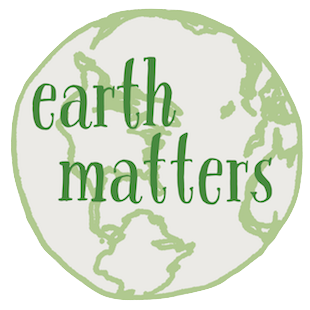Earth Matters focuses on conservation, sustainability, recycling and healthy living.
If Earth Matters to you, sign up for our mailing list and get the next installment delivered bright to your inbox.
by Kara Weinstein
An increase in waste is just another byproduct of COVID-19. Gloves and masks, takeout containers, and plastic waste from grocery stores are filling trash bags (and the street). Trash is filled with compostable waste, too, as New York City has stopped compost services to help the budget deficit. Over the last few years, the zero-waste trend has picked up steam, as grocery stores, clothing labels, and individuals have strived to reduce their waste footprint. But during the pandemic, these priorities have gone by the wayside.
Christine Grace, cofounder and CEO of Foodprint Group, a group that helps food and hospitality operations develop zero waste strategies, is well aware of the challenges we are facing. From large companies like DIG, Eatly, and Google NYC to smaller restaurants like west~bourne, Osteria Mozza, and Breads Bakery, Foodprint Group has developed strategies that reduce their waste footprint in effective and implementable strategies. I spoke with her to better understand how COVID-19 affects our waste system and how we may combat an increase in trash.
 What has COVID-19 done to our current food system?
What has COVID-19 done to our current food system?
Broader food systems issues are definitely getting a spotlight right now. COVID-19 doesn’t discriminate on who can get sick, but the person getting sick is living in close quarters, is serving us food, is working in hospitals. The system has been broken for a long time and restaurants aren’t paying low wages because they want to.
How will food service have to adjust to a new normal?
Food service and office folks are trying to figure out what the new normal will look like. Many people around us are going plastic, thinking single use is the solution. It’s an immediate reaction, but it’s not going to solve the problem. And it is going to make more waste. Stepping back for a moment and understanding cross contamination and food safety, whether I’m picking up a single ketchup bottle to put on my hot dog or whether I’m pulling a packet out of a box of seventy packets, either way I’m touching things other people are going to use. Instead, operations are going to move back of house. The person serving the food has been through food safety and food handler training. That person will be putting salsa on my taco. It will be a big shift in terms of labor, but it is going to decrease waste. Waste is going to be a very real but not a necessary part of this except for more glove use
What do we do in the world of to-go?
It’s just as safe as it’s always been for the customer, but we are getting a lot of questions like what does that process look like at the dish line? How do we make sure that the person carrying dirty dishes is safe? We can keep people very safe in a reusables world, but we need to get ahead as corporate dining and other places start to plan their new reality.
Chemical waste will be a problem as well: people are bleaching everything and ruining the natural biome. But we know that soap is all we need. Everybody is immediately going back to “it was safer when we were hyper-sanitizing everything with all of these chemicals,” but we’re going to have negative repercussions from that.

Photo: Susan Hellauer.
How will food service be able to effectively communicate their safety standards to the public?
This is going to force a level of transparency and dialogue that a lot of restaurants have typically shied away from, but if they can’t be comfortable with transparency, people will be less comfortable eating there. There will be a lot of education needed for people to understand that these hourly wage workers that are putting themselves at risk for us are practicing all the current safety procedures already. The average person doesn’t know basic safety practices like appropriate temperatures and how to handle fresh ingredients. We do know that COVID-19 doesn’t survive very long on food. We’re going to need to do a lot of work in terms of media and social media, and it’s been good to see some of this already.
In a commercial kitchen, everything is sanitized. We’ve learned that plastics harbor COVID-19 longer than other surfaces. These plastic utensils are going to be more susceptible to being longer term carriers. A reusable sanitized ceramic bowl or even a melamine bowl is safer. So how do we get towards even going from plastic to bamboo–if you’re going to use disposables that we know are just safer and less friendly to bad microbes.
How do you think COVID-19 will have a long term effect on our food and waste systems?
Why did the current environment make it so easy for this to be so bad? We’ve heard about factory farming and what were the contributions to getting COVID-19 from animals to people. Once we really understand that, it’s going to shed a light on food systems issues that really need to shift.
There’s pain throughout the food system. We’ve got farmers who grow for wholesale or farmers who grow for direct who have no markets right now and we’re going to need that food. We have people throughout the food system at risk and getting sick because we have to shift the way that grocery stores and warehouses are operating. I do think there’s going to be positive changes in terms of the reality that people need sick pay, they need to be encouraged to go home when they don’t feel well. That waste will be a big part of that.
Do you think that there is any chance compost comes back fully funded? How can we convince the city that it is an essential service?
We need municipal composting everywhere. Compost has really struggled because it’s not a mandatory program, but I think expanded compost is coming. Everyone on a block needs to participate to make it cost effective. Everybody has food waste, yet people aren’t educated about it. They think it’s messy. They’re worried about rats. If it’s made mandatory, people will be fined when they don’t do it. And when that happens, it’ll change. The city has been eager to expand the work at Newtown Creek and other wastewater treatment facilities. So the city has the capacity to handle more. A lot of folks in our community would like to see more options in New York State and in the city for actual composting.We want the best, highest use for the food waste. It’s great to make energy with it using biodigesters, but the best use is to capture those nutrients. When we’re mixing it with all of the other wastewater in the city, we are diluting it. Those nutrients should be going back to food production.
We are in the center of a massive breadbasket. There’s so much food production in the states of New York, Pennsylvania, and New Jersey. Why aren’t we making sure that we provide those valuable nutrients to our regional food system? We need more small, local composting systems, but we also need more on a larger scale. It’s not a big moneymaker and it’s not sexy because composting doesn’t have to be wildly high tech. So it’s harder to get the money needed. It’s easier to say we’re going to build a massive anaerobic digester because it’s so sexy, right? Anaerobic digestion is definitely part of the solution, but it can’t be the whole solution.
Read Earth Matters every Wednesday on Nyack News And Views, or sign up for the Earth Matters mailing list. Earth Matters focuses on conservation, sustainability, recycling and healthy living.









